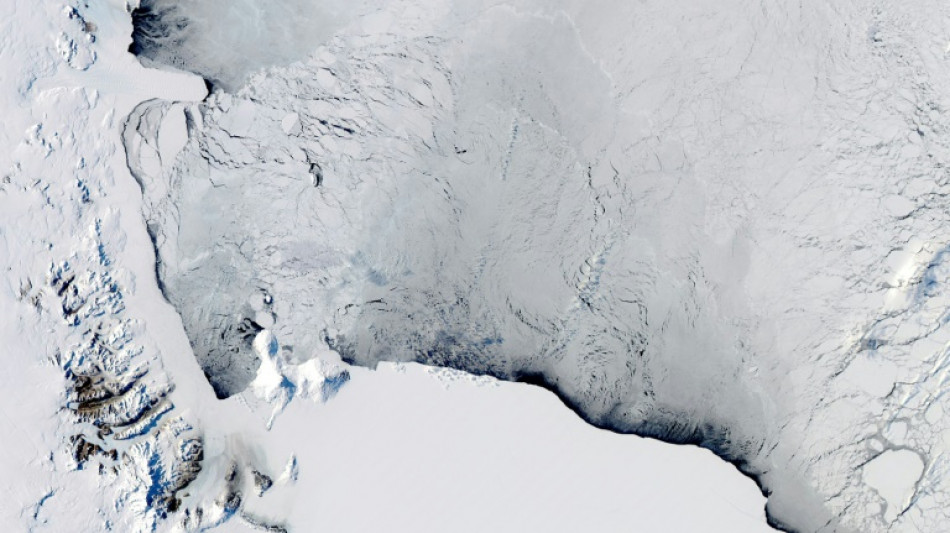
-
 Sinner caps eventful year with ATP Finals triumph over great rival Alcaraz
Sinner caps eventful year with ATP Finals triumph over great rival Alcaraz
-
Portugal book spot at 2026 World Cup as England stay perfect

-
 Hakimi, Osimhen, Salah shortlisted for top African award
Hakimi, Osimhen, Salah shortlisted for top African award
-
Sinner beats great rival Alcaraz to retain ATP Finals title

-
 Schenk wins windy Bermuda Championship for first PGA title
Schenk wins windy Bermuda Championship for first PGA title
-
Crime, immigration dominate as Chile votes for president

-
 Kane double gives England record-setting finish on road to World Cup
Kane double gives England record-setting finish on road to World Cup
-
World champions South Africa add Mbonambi, Mchunu to squad

-
 Greenpeace says French uranium being sent to Russia
Greenpeace says French uranium being sent to Russia
-
'Now You See Me' sequel steals N. American box office win

-
 Argentina beat Scotland after frenzied fightback
Argentina beat Scotland after frenzied fightback
-
Argentina beat Scotland after stunning fightback

-
 Pope urges leaders not to leave poor behind
Pope urges leaders not to leave poor behind
-
Pressure will boost Germany in 'knockout' Slovakia clash, says Nagelsmann

-
 Ecuador votes on hosting foreign bases as Noboa eyes more powers
Ecuador votes on hosting foreign bases as Noboa eyes more powers
-
Portugal qualify for 2026 World Cup by thrashing Armenia

-
 Greece to supply winter gas to war battered Ukraine
Greece to supply winter gas to war battered Ukraine
-
India and Pakistan blind women show spirit of cricket with handshakes

-
 Ukraine signs deal with Greece for winter deliveries of US gas
Ukraine signs deal with Greece for winter deliveries of US gas
-
George glad England backed-up haka response with New Zealand win

-
 McIlroy loses playoff but clinches seventh Race to Dubai title
McIlroy loses playoff but clinches seventh Race to Dubai title
-
Ecuador votes on reforms as Noboa eyes anti-crime ramp-up

-
 Chileans vote in elections dominated by crime, immigration
Chileans vote in elections dominated by crime, immigration
-
Turkey seeks to host next COP as co-presidency plans falter

-
 Bezzecchi claims Valencia MotoGP victory in season-ender
Bezzecchi claims Valencia MotoGP victory in season-ender
-
Wasim leads as Pakistan dismiss Sri Lanka for 211 in third ODI

-
 Serbia avoiding 'confiscation' of Russian shares in oil firm NIS
Serbia avoiding 'confiscation' of Russian shares in oil firm NIS
-
Coach Gambhir questions 'technique and temperament' of Indian batters

-
 Braathen wins Levi slalom for first Brazilian World Cup victory
Braathen wins Levi slalom for first Brazilian World Cup victory
-
Rory McIlroy wins seventh Race to Dubai title

-
 Samsung plans $310 bn investment to power AI expansion
Samsung plans $310 bn investment to power AI expansion
-
Harmer stars as South Africa stun India in low-scoring Test

-
 Mitchell ton steers New Zealand to seven-run win in first Windies ODI
Mitchell ton steers New Zealand to seven-run win in first Windies ODI
-
Harmer stars as South Africa bowl out India for 93 to win Test

-
 China authorities approve arrest of ex-abbot of Shaolin Temple
China authorities approve arrest of ex-abbot of Shaolin Temple
-
Clashes erupt in Mexico City anti-crime protests, injuring 120

-
 India, without Gill, 10-2 at lunch chasing 124 to beat S.Africa
India, without Gill, 10-2 at lunch chasing 124 to beat S.Africa
-
Bavuma fifty makes India chase 124 in first Test

-
 Mitchell ton lifts New Zealand to 269-7 in first Windies ODI
Mitchell ton lifts New Zealand to 269-7 in first Windies ODI
-
Ex-abbot of China's Shaolin Temple arrested for embezzlement

-
 Doncic scores 41 to propel Lakers to NBA win over Bucks
Doncic scores 41 to propel Lakers to NBA win over Bucks
-
Colombia beats New Zealand 2-1 in friendly clash

-
 France's Aymoz wins Skate America men's gold as Tomono falters
France's Aymoz wins Skate America men's gold as Tomono falters
-
Gambling ads target Indonesian Meta users despite ban

-
 Joe Root: England great chases elusive century in Australia
Joe Root: England great chases elusive century in Australia
-
England's Archer in 'happy place', Wood 'full of energy' ahead of Ashes

-
 Luxury houses eye India, but barriers remain
Luxury houses eye India, but barriers remain
-
Budget coffee start-up leaves bitter taste in Berlin

-
 Reyna, Balogun on target for USA in 2-1 win over Paraguay
Reyna, Balogun on target for USA in 2-1 win over Paraguay
-
Japa's Miura and Kihara capture Skate America pairs gold


Over 40% of Antarctica's ice shelves lost mass in 25 years: study
More than 40 percent of Antarctica's ice shelves lost volume in 25 years, increasing the risk of sea levels rising and with human-induced warming the likely cause, scientists said on Thursday.
Ice shelves are freshwater extensions of the ice sheets that cover much of Antarctica, floating on the seas that surround the vast and ecologically fragile continent.
They act as giant "plugs" stabilising massive glaciers, slowing down the flow of ice into the ocean.
When ice shelves shrink, these plugs weaken and the rate of ice loss from the glaciers increases.
In a study published in the journal Science Advances on Thursday, scientists analysed more than 100,000 satellite radar images to assess the health of Antarctica's 162 ice shelves.
They found that the volume of 71 fell from 1997 to 2021.
"Acceleration of glaciers due to ice shelf deterioration has added about six millimetres to global sea level since the start of the study period," said Benjamin Davison, a research fellow at the University of Leeds in Britain who led the study.
Although Antarctica only contributes six percent to total sea level rise, "it could increase substantially in the future if ice shelves continue to deteriorate," he told AFP.
The almost 67 trillion tonnes of ice that leaked into the ocean during the quarter-century under review was offset by 59 trillion tonnes being added, giving a net release of 7.5 trillion tonnes of meltwater.
"We expected most ice shelves to go through cycles of rapid but short-lived shrinking, then to regrow slowly," said Davison.
"Instead, we see that almost half of them are shrinking with no sign of recovery."
Without human-caused warming, some ice regrowth would have occurred on West Antarctica's ice shelves through a natural variation in climate patterns, he added.
- 'Steady attrition' -
Different winds and ocean currents affect Antarctica, resulting in changes that are uneven.
Almost all of western Antarctica's ice shelves lost volume as they were exposed to warmer water that eroded them from below.
On the western Getz Ice Shelf alone, melting at the base was responsible for 95 percent of the net loss of 1.9 trillion tonnes of ice.
Calving -- a process whereby chunks of ice break away into the ocean -- accounted for the rest.
Anna Hogg, a University of Leeds professor who co-authored the study, said 48 ice shelves lost more than 30 percent of their initial mass during the period.
In eastern Antarctica, ice shelves mostly stayed the same or grew because a band of cold water along the coast protected them from warmer currents.
"We are seeing a steady attrition due to melting and calving... This is further evidence that Antarctica is changing because the climate is warming," Hogg added.
The melting of ice shelves could have major implications for global ocean circulation, which moves vital nutrients, heat and carbon from the polar ecosystem.
The added freshwater may have diluted the dense and salty waters of the Southern Ocean and made them lighter, delaying their sinking process and potentially weakening the global ocean conveyor belt.
"The ocean absorbs a lot of atmospheric heat and carbon and the Southern Ocean surrounding Antarctica is the largest contributor to that, so it's a hugely important regulator of global climate," Davison told AFP.
X.AbuJaber--SF-PST




